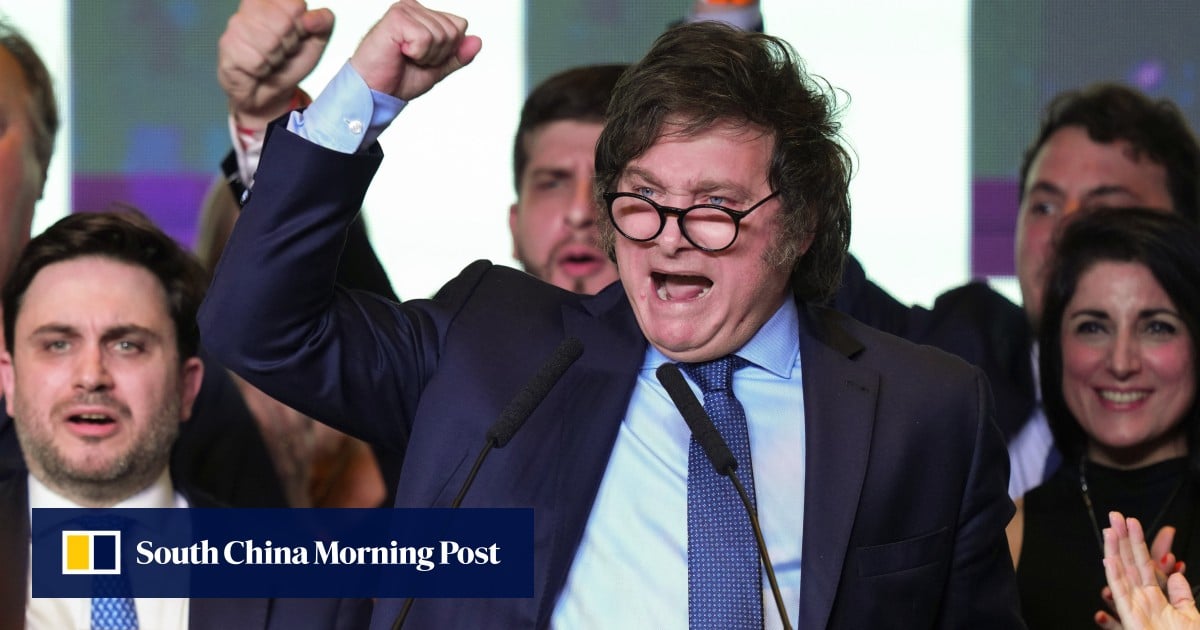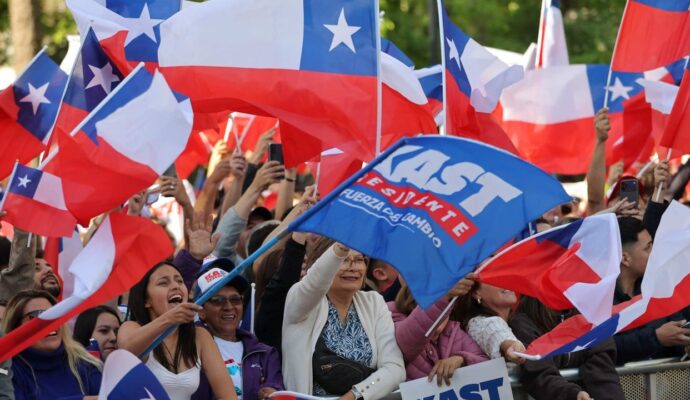
The decision to nominate Marcelo Suarez Salvia, a career diplomat now serving as the top envoy to Trinidad and Tobago, followed several rounds of formal and informal negotiations between Buenos Aires and Beijing, Argentina’s Clarin newspaper reported.
According to the news portal El Zonda, Beijing has received the proposal for Salvia’s appointment and informed Buenos Aires that it would accept it.
Relations between Argentina – one of South America’s biggest economies – and China have been strained since Milei, who campaigned on cutting ties with China, was sworn in two weeks ago.
No Brics for Argentina, says top aide to presidential winner Milei
No Brics for Argentina, says top aide to presidential winner Milei
Milei, a right-wing libertarian, pledged to realign his country with the United States and downgrade relations with China, the top buyer of Argentinian soybeans and beef. China is also a key investor in Argentina’s lithium industry as well as a range of infrastructure, from railways to solar farms.
He called China “an assassin” during the presidential campaign, and suggested that his country would not join Brics, a bloc of the leading emerging economies of Brazil, Russia, India, China and South Africa. Brics invited Argentina to join as part of a six-nation expansion announced in August.
Beijing has not confirmed the suspension.
When asked about the reports on Thursday, Chinese foreign ministry spokesman Wang Wenbin did not deny them, saying China remained committed “to cooperate with Argentina on the basis of equality and mutual benefit”.
Sudden rise of ‘Argentina’s Trump’ puts economic ties with China at risk
Sudden rise of ‘Argentina’s Trump’ puts economic ties with China at risk
Milei’s approach is a sharp contrast to the stand by Fernandez, who hailed China as a “true friend” of Argentina during his visit to Beijing in October.
Cui Shoujun, professor and director of the Centre for Latin American studies at Renmin University of China, said Salvia’s appointment could be seen as the latest attempt by Milei’s government to stabilise relations with China.
Salvia is a senior diplomat who coordinated Argentina’s chairmanship of the Group of 77 and China in 2011. He would replace Sabino Vaca Narvaja, a politician who became ambassador in March 2021.
“A career diplomat usually has rich experience in dealing with some thorny issues such as commercial cooperation or ideological differences, which would be helpful to navigate ties between China and Argentina,” Cui said.
Argentina has voted in China critics before. In 2015, Mauricio Macri became president after taking a hard line on Beijing in his campaign. However, during his time in office, he signed tens of billions of US dollars in investment deals with China, ranging from energy, mining, agriculture to transport.
Cui said the two sides had learned to navigate ideological differences and it was unlikely that the newly elected right-wing governments in Latin America would veer too far to the right, especially on economic issues.
“Argentina is facing many practical challenges, for example, how to improve employment rates and boost local economies, which could hardly be overcome without deep cooperation with China,” he said.
